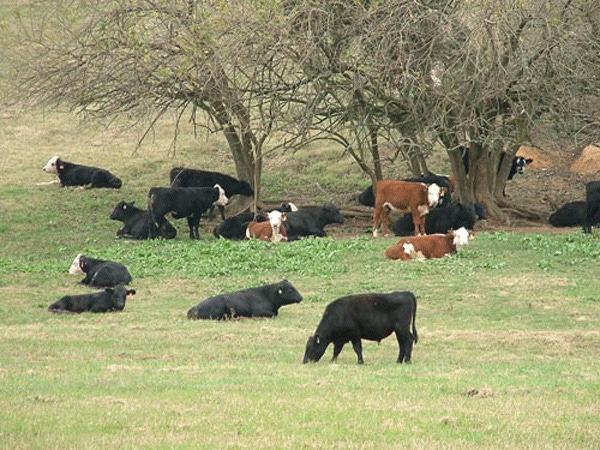December 29, 2011

Farmers can reduce feed costs and increase their profit by teaching cows to eat more weeds than grass, a nationally known livestock expert says.
Kathy Voth, whose area of expertise is using livestock as a management tool, will deliver the keynote address at the 2012 Virginia Cooperative Extension winter forage conferences Jan. 17-20.
“If people come to the conferences and take notes, they can go home and do this for themselves,” said Voth, owner of Livestock for Landscapes. The Colorado-based company strives to help farmers and ranchers improve profitability by using livestock’s natural behavior as an inexpensive means to manage vegetation. “Cows pretty much eat what we decide they eat.”
Voth said weeds are nutritious and more digestible than grass and have more protein. Canada thistle, which grows wild in most pastures, is as much as 21 percent protein. If beef or dairy producers fed their herds a steady diet of the weed, she said, the animals would stand to gain 2.2 pounds per day “and you don’t have to pay anything for it.”
Research based on average weed population in a typical farm pasture has shown that if cows ate 70 percent of the weeds, there would be 43 percent more forage, Voth said.
She began studying the concept of cows eating weeds while working for the Bureau of Land Management in Utah. She found she could teach bovines to eat weeds in about 10 hours over the course of a week using basic animal behavior principals.
“Now I just have to convince producers,” she said.
She chooses a small group of animals and trains them in the pasture, giving them “snacks” of varying feed grains twice a day for four days to get them used to trying new foods. On the fifth day, she skips the morning snack, and in the afternoon she mixes cut weeds into the feed mixture the cows had eaten previously.
On the sixth day, Voth mixes less feed and more weeds. By the seventh day, the animals are eating plain weeds and enjoying them.
Once she quits feeding them the daily snacks, the cattle are able to locate weeds in the pasture and eat them there. “Then they train their offspring and their herd mates,” Voth said.
Forage conference participants also will hear from two Extension specialists who will talk about the practical science behind weed management and how to improve the quality of forages.
The workshops will be held Jan. 17 in Wytheville, Jan. 18 in Weyers Cave, Jan. 19 in Gordonsville and Jan. 20 in Chatham.
To register, visit http://www.vaforages.org.
You May Also Like




